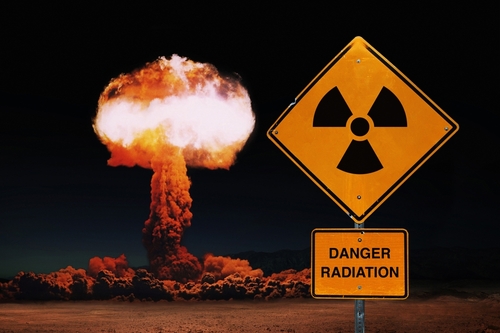
In a world already brimming with geopolitical tensions, a new and deeply concerning report has emerged that could potentially escalate global security threats to unprecedented levels. It has been revealed that the Taliban, the de facto rulers of Afghanistan since the withdrawal of American forces, have allegedly made clandestine overtures to North Korea in pursuit of nuclear weapons technology.
The abrupt departure of American troops from Afghanistan, orchestrated under the Biden administration, left a power vacuum swiftly filled by the Taliban. This transition of power not only resulted in the Taliban’s control over the nation but also gave them access to a significant cache of American military equipment. The implications of such a group obtaining nuclear capabilities are dire and have sent shockwaves through international communities.
💥#BREAKING: The Afghan Taliban is caught in an international controversy after an 8-member official Taliban delegation secretly visited North Korea to discuss cooperation on nuclear weapons tech.
Afghanistan has a nuclear energy program taken over by the Taliban in Aug 2021. pic.twitter.com/0YdqbzoO3e
— Joe Biden Fails 🤣 (@JoeBidenFails) January 3, 2024
According to intelligence sources, an eight-member delegation from the Taliban’s defense ministry, including Maulvi Abdul Rasheed Munib, the security chief of Kandahar, secretly visited North Korea. This visit was shrouded in secrecy, and the details of their discussions have not been made public. However, the very notion that such a meeting could be centered around nuclear weapons technology is a cause for alarm.
The Middle East Media Research Institute has brought to light the Taliban’s burgeoning interest in nuclear armaments. While the Afghan Taliban’s nuclear ambitions have not been widely recognized, it is reported that they inherited a longstanding nuclear energy program when they seized control of Afghanistan in August 2021.
Report: Taliban Visited North Korea Seeking Nuclear Weapons | The Gateway Pundit | by Guest Contributor https://t.co/WTqKOb2NTo
— 🇺🇸🙏dpadams6🙏🇺🇸 (@dpadams6) January 8, 2024
Former chief of Afghanistan’s National Directorate of Security, Rahmatullah Nabil, has voiced concerns about the Taliban’s potential pathways to acquiring tactical nuclear weapons. His warnings suggest that the group might seek to either collaborate with Pakistani engineers or directly purchase such weapons. Despite Nabil’s political opposition to the Taliban, his assertions have prompted several Western intelligence agencies to initiate investigations into the matter.
The geopolitical landscape surrounding Afghanistan adds another layer of complexity to this issue. Neighboring countries such as Iran, Russia, Pakistan, and China maintain varying degrees of relations with Afghanistan. With some of these nations being nuclear-armed states, the potential for regional destabilization is high should the Taliban succeed in their alleged nuclear pursuits.
As the international community grapples with these developments, the silence from Taliban officials on the reported visit to North Korea only fuels speculation and concern. The lack of transparency and the gravity of the situation underscore the need for vigilant monitoring and a coordinated response from global powers.
The prospect of the Taliban acquiring nuclear weapons represents a potential disaster, not just for the region but for the entire world. It is imperative that diplomatic efforts and intelligence operations work in tandem to prevent such a catastrophic escalation from becoming a reality. The stakes could not be higher, and the urgency for action has never been more pressing.











